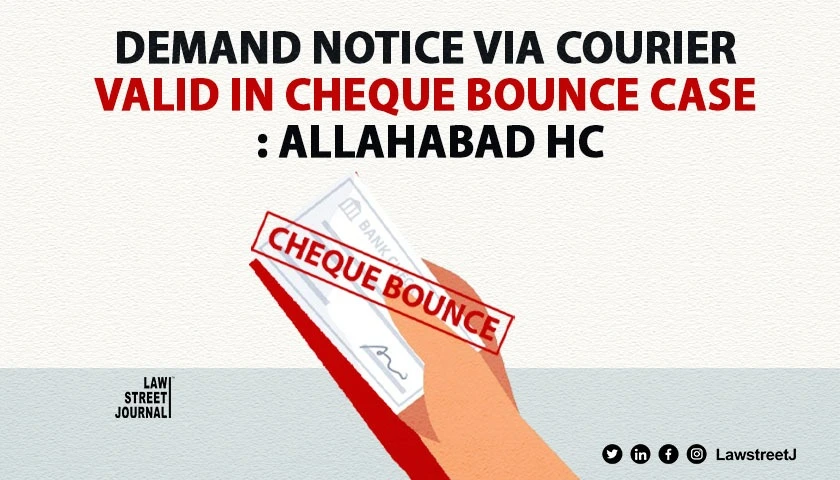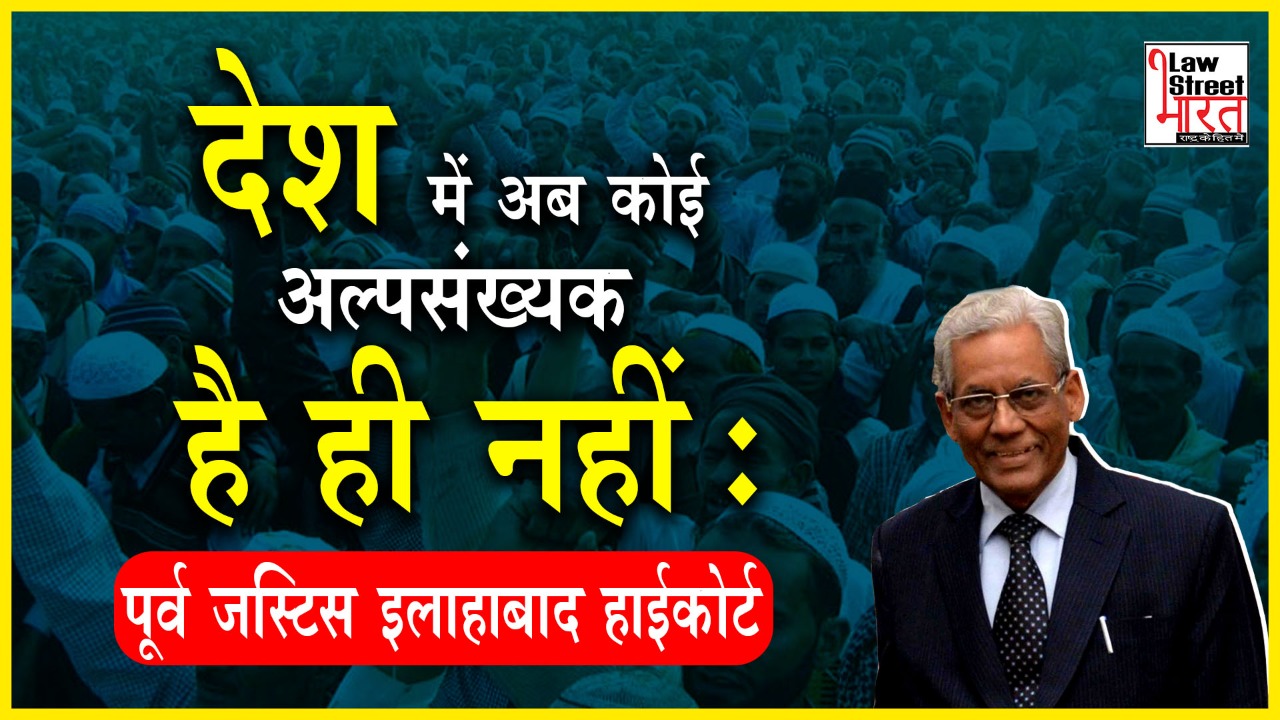Allahabad: The Allahabad High Court has held that a demand notice sent through a courier service is valid for initiating proceedings under Section 138 of the Negotiable Instruments (NI) Act in cheque dishonour cases. However, the Court clarified that the presumption of service under Section 27 of the General Clauses Act cannot be invoked for notices sent via courier until an amendment is made to include courier services along with registered post.
The Court also observed that in Section 94 of the N.I. Act, the word "may" for sending the written notice through the post is directory and not mandatory.
Therefore, the option of sending the written notice through a courier service is not barred under Section 94 of the N.I. Act. The only advantage of sending the notice through the post is provided in the second part of Section 94 of the N.I. Act, which states that if the notice is sent through the post to the correct address, even if it does not reach the destination, it will not be deemed invalid. The term "service through post" has been defined in Section 27 of the General Clauses Act, which provides that to benefit from the presumption of service of notice, it should be sent through registered post.
A bench of Justice Arun Kumar Singh Deshwal made these crucial observations while dismissing a petition seeking to quash a complaint filed under Section 138 of the Negotiable Instruments Act, 1881.
The Court in the present case framed the following questions for determination:
(i) Whether the Court concerned has the authority to recall its order of dismissing the complaint for want of prosecution at the initial stage;
(ii) Whether the conditional cheque, which was required to be produced after giving information to the drawer, will attract the offence under Section 138 of the N.I. Act after its dishonour if no information was given to the drawer of the cheque before presenting it to the bank;
(iii) Whether a written notice through courier service is a valid notice under Section 138 of the N.I. Act and whether the presumption of service under Section 27 of the General Clauses Act can be invoked for this notice;
(iv) Whether service of notice through WhatsApp can be considered an effective service unless rules are framed prescribing the procedure for delivery of service.
The Court, while answering the first question, referred to Vishnu Agarwal vs. State of U.P. and another, and held that when the complaint under the N.I. Act was dismissed for want of prosecution at the initial stage of issuing summons, the Court concerned has the authority to recall the same, and the bar of Section 362 Cr.P.C. will not apply.
Further, while answering the second question, the Court referred to Sunil Todi and others vs. the State of Gujarat, and another, and held that even if there is a condition that before the presentation of the cheque, notice should be given to the drawer of the cheque, the offence under Section 138 of the N.I. Act will still be attracted upon the bouncing of such a conditional cheque if no information is given to the drawer of the cheque.
While answering the third question, the Court held that the option of sending the written notice through a courier service is not barred under Section 94 of the N.I. Act and that a notice of demand through courier service is valid for Section 138 of the N.I. Act. However, the presumption of service under Section 27 of the General Clauses Act cannot be invoked for notices sent through courier until an amendment is made to include courier service in addition to registered post.
To decide the fourth question, the Court referred to Section 13(2) of the I.T. Act and held that it explicitly provides the manner and procedure for dispatch and receipt of electronic records as well as the time of receipt. The Court also referred to Rajendra vs. State of U.P. and another, where it was held that notices sent through email and WhatsApp are valid notices for the purpose of Section 138 of the N.I. Act.
In conclusion, the Court dismissed the application and held that from the perusal of averments in the complaint, a prima facie case is made out for presumption under Section 139 of the N.I. Act and also granted the liberty to the applicant to raise this issue during the trial to rebut the presumption.
Additionally, in a significant move, the Court observed that in several cases, the order sheets are being written by the concerned Court or official in illegible handwriting, making it difficult to understand what they have written. Therefore, it is directed to all the District Judges of U.P. to apprise all their subordinate judicial officers that while writing the order sheet, the order must be written in clearly legible handwriting, or it should be typed.
Furthermore, it directed the Registrar (Compliance) to send a copy of the present order to all the District Judges of Uttar Pradesh, to apprise their subordinate judicial officers that the order sheet of the case should be written in neat and legible handwriting or typed form.




!["No Loudspeakers For Azan, No Fundamental Right To Create Noise," Says Allahabad HC To Two Mosques [Read Judgment]](/secure/uploads/2020/01/lj_4995_Allahabad_HC_AZAN.jpg)






